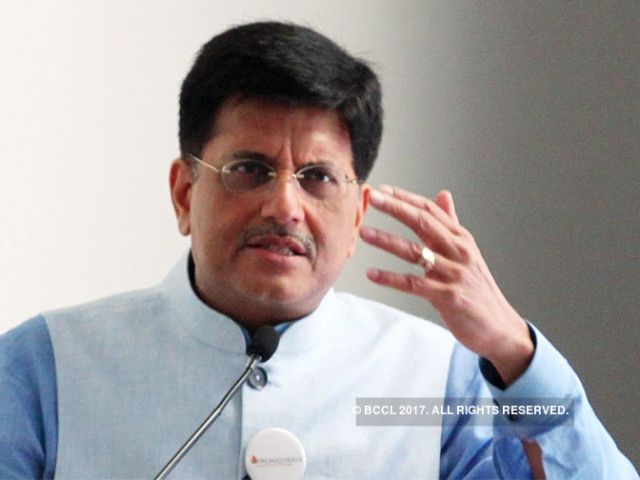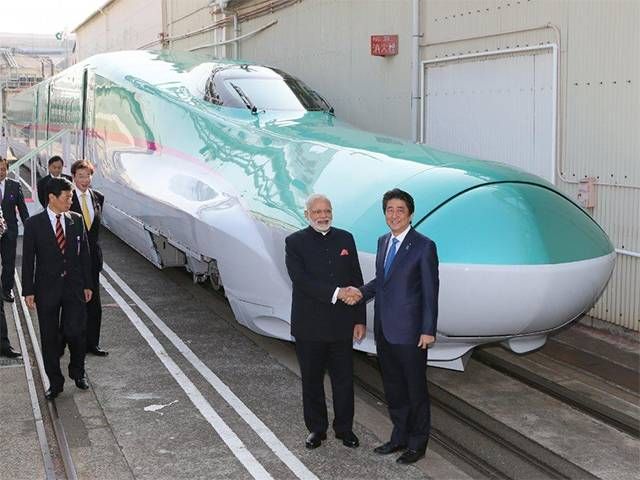
by admin | May 25, 2021 | Business, Corporate, Corporate Governance, Economy, Large Enterprise, News, Politics

Piyush Goyal
Mumbai : Following a controversy over a circular of the Railway Board issued last week, listing details to be printed on food packets/casseroles on trains, Railway Minister Piyush Goyal has ordered even the MRP of all food items must be printed, an activist said here on Monday.
The Railway Board’s circular had listed details like names of the supplier/contractors, weight/grams, date of packing and distinctive symbol of veg/non-veg food items.
Surprisingly, it failed to include the specification of mentioning the maximum retail price of the food items, compelling Mumbai RTI activist Anil Galgali to lodge a complaint with Goyal.
“This error or omission could have been grossly misused by the food suppliers/contractors to cheat the gullible passengers consuming those on long-distance trains with limited halts,” Galgali pointed out.
The original circular was issued on September 19 by Additional Member, Tourism and Catering, Sanjiv Garg, which failed to mention the requirement of MRP, he said.
Following the complaint by Galgali, a Mumbai Bharatiya Janata Party member apprised the Railway Minister of the faux pas and urged rectification of the same.
“Today, the Railway Board has issued a fresh circular, incorporating the suggestion and henceforth the MRP and sale prices should be compulsorily printed on all the food items served to the passengers,” Galgali said.
He expressed gratitude to Goyal and the Board for intervening in the matter and preventing a possible loot of lakhs of railway passengers by the service providers.
—IANS

by admin | May 25, 2021 | Corporate, Corporate Governance, News, Politics

Piyush Goyal
New Delhi : With the Indian society becoming increasingly “aspirational”, Railway Minister Piyush Goyal on Thursday made an impassioned plea to citizens to also aspire for the goal of achieving the highest quality in all spheres of activity.
“The aspiration of the nation has to change… People have to think of what could be the way to make this country aspirational for the goal of achieving the highest quality,” Goyal said, while addressing the 12th national conclave of the state-run Quality Council of India.
“What is truly impacting this country’s competitive edge to serve the world,” Goyal, who has recently been promoted to cabinet rank, asked, and said in response himself that “ultimately it is quality”.
Speaking of how many Indian export products face rejection because of failing to meet global standards, the minister said that India’s role model should be a country like Japan, “which has zero-tolerance on quality”.
“The has to be a national movement to instil the sense of quality across all areas of life… We need to also put this into politicians.
“We will be stuck till we don’t come of the ‘adjustment’ psychology, of ‘managing’ somehow… These words have to be removed from our dictionary,” he added.
He also said the Quality Council has played a major role in helping generate “good processes and systems” in the delivery of government services and mentioned its work in improving coal quality and for thee railways.
Referring to recent major train accidents in India, Goyal said the Council would help in the investigation process.
“We’ll strengthen the investigation process, going into the minutest details of the accidents go in for root cause analysis,” he added.
—IANS

by admin | May 25, 2021 | Corporate, Corporate Governance, News, Politics
 New Delhi : Prime Minister Narendra Modi and Japanese Prime Minister Shinzo Abe will on Thursday lay the foundation stone for India’s first bullet train project, connecting Mumbai and Ahmedabad, in Ahmedabad, Railway Minister Piyush Goyal said on Monday.
New Delhi : Prime Minister Narendra Modi and Japanese Prime Minister Shinzo Abe will on Thursday lay the foundation stone for India’s first bullet train project, connecting Mumbai and Ahmedabad, in Ahmedabad, Railway Minister Piyush Goyal said on Monday.
“The commencement of work on the country’s first High Speed Rail (Bullet train) project will begin on September 14 in Ahmedabad,” Goyal told reporters here, adding that the bullet train technology would “revolutionise and transform the transport sector”.
“This will be a historical moment as India will gets it first bullet train,” he said.
“This is an occasion to celebrate the advent of the most modern technology in India. It shall also benefit the farmers for transportation of agricultural produce in a fast mode,” Goyal said.
The Railway Minister said that the high-speed rail was envisioned by Modi to take Indian Railways towards “most modern technologies like developed countries”.
With the Indian Railways adopting most modern technologies, the bullet train was an endeavour to bring economic growth and prosperity in the country, he said.
The 508-km Mumbai-Ahmedabad High Speed Rail Project will entail an estimated cost of Rs 1,10,000 crore.
“Out of this Rs 1,10,000 crore, Japan is giving a loan of Rs 88,000 crore and the interest on this loan is minimal, i.e. 0.1 per cent,” Goyal said.
“This loan is to be repaid to Japan in 50 years. Loan repayment period of 50 years with 15 years grace.”
Of the 508-km stretch, 92 per cent of the route will be elevated, six per cent in tunnel and the rest two per cent will be on the ground.
That is, 508 km stretch will have 468 km of elevated track, 27 km inside tunnel and the remaining 13 km on the ground.
The high speed train will also pass through the country’s biggest tunnel of 21 km, of which seven km will be under the sea.
Sushant Mishra, Infra Advisor to the Indian Railways, told IANS that Japan was awarded the contract because there had been no accident on its bullet train networks.
“They (Japan) are pioneers of bullet train technology, and their train has the highest punctuality rate,” Mishra said.
Japan was also ready to transfer the technology to India and sponsoring the project.
He also said that the works for the terminal in Sabarmati would start from September 14 itself.
“About 825 hectares of land would be acquired for the high speed rail,” he said.
On the Ahmedabad-Mumbai route, total 12 stations have been proposed that include Mumbai, Thane, Virar, Boisar, Vapi, Bilimora, Surat, Bharuch, Vadodara, Anand, Ahmedabad and Sabarmati.
The distance of 508 km will be covered in two hours and seven minutes by the bullet train if it stops at four stations namely Ahmedabad, Vadodara, Surat and Mumbai.
According to railway ministry officials, the operating speed of the bullet train will be 320 kilometers per hour and maximum speed will be 350 kilometers per hour.
If the bullet train will stop at all 12 stations, then it will cover the distance in two hours and fifty-eight minutes.
In a day, the high-speed train will make 70 Ahmedabad-Mumbai sorties.
“A total of 24 high-speed trains will be imported from Japan and then rest of the rakes will be manufactured in India,” Mishra said.
—IANS

by admin | May 25, 2021 | News, Politics
 New Delhi : Four Ministers of State — Dharmendra Pradhan, Piyush Goyal, Nirmala Sithraman and Mukhtar Abbas Naqvi — were on Sunday promoted to the Cabinet and nine new faces including four former bureaucrats became Ministers of States as Prime Minister Narendra Modi expanded the union council of ministers.
New Delhi : Four Ministers of State — Dharmendra Pradhan, Piyush Goyal, Nirmala Sithraman and Mukhtar Abbas Naqvi — were on Sunday promoted to the Cabinet and nine new faces including four former bureaucrats became Ministers of States as Prime Minister Narendra Modi expanded the union council of ministers.
The promoted ministers and the new faces were administered the oath of office and secrecy by President Ram Nath Kovind at a 35-minute ceremony at the Rashtrapati Bhavan, attended among others by Vice President M. Venkaiah Naidu, Modi, BJP President Amit Shah, Leader of the Opposition in the Rajya Sabha Ghulam Nabi Azad and family members of the some new ministers.
The new Ministers of State are former diplomat Hardeep Puri, Gajendra Singh Shekhawat (MP), former Mumbai Police Commissioner Satya Pal Singh (MP), former bureaucrat K.J. Alphons as well as Ashwini Choubey, Shiv Pratap Shukla, Virendra Kumar, Anant Kumar Hegde and former union Home Secretary R.K. Singh (all MPs).
Sunday’s exercise did not involve BJP allies including the Janata Dal-United.
The portfolios of the new and existing ministers — if any of them gets a new ministry — will be known after Rashtrapati Bhavan issues a press communique on recommendations of the Prime Minister, who left for China after the swearing-in ceromony.
Pradhan (Petroleum), Goyal (Power), Sitharaman (Commerce and Industry) and Naqvi (Minority Affairs) were Ministers of State with independent charge.
Suresh Prabhu appeared to indicate that he will no longer be the Railway Minister.
“Thanks to all 13 Lacs plus rail family for their support, love, goodwill. I will always cherish these memories with me. Wishing you all a great life,” he tweeted. Prabhu had offered to quit after last months’s rail accident in Uttar Pradesh claimed 23 lives.
Among the new entrants, four are former bureaucrats. While Puri and Alphons are not members of Parliament, R.K. Singh and Satyapal Singh are members of Lok Sabha. Four others are from the Lok Sabha and one is from Rajya Sabha.
Puri, who was India’s Permanent Representative at the UN, joined the BJP ahead of the 2014 Lok Sabha election. An officer of the 1974 IFS batch, he is known for his experience and expertise in foreign policy and national security.
Alphons, who earned the sobriquet “Demolition Man” when as DDA Commissioner he undertook a campaign against unauthorized constructions in Delhi scrapping 15,000 buildings, is a former IAS officer who joined the BJP in Kerala.
As a Collector, Alphons played a leading role in making Kottayam the first literate town in the whole country in 1989. He is the first BJP person from Kerala in the central government after the veteran O. Rajagopal.
R.K. Singh, a Lok Sabha member from Ara in Bihar, was union Home Secretary during the UPA rule and served in various capacities.
Satyapal Singh, an MP from Baghpat in Uttar Pradesh, was Mumbai Police Commissioner and is also known for his work in Maoist-affected areas of Andhra Pradesh and Madhya Pradesh. He was credited with breaking the backbone of organised crime syndicates in the 1990s.
In the political category, Shiv Pratap Shukla, the Rajya Sabha MP from Uttar Pradesh, is a member of the Parliamentary Standing Committee on Rural Development and a four-time member MLA in Uttar Pradesh. He has served as cabinet minister in the state for eight years and is known for his work in rural development, education and prison reforms.
The other nominee from Bihar, Ashwini Choubey, is a Lok Sabha member from Buxar. He was elected MLA from Bhagalpur five consecutive times and has held the portfolios of Health, Urban Development and Public Health Engineering.
Virendra Kumar is a six-time Lok Sabha member from Tikamgarh in Madhya Pradesh and is the chairman of Parliamentary Standing Committee on Labour. Choubey and Kumar have participated in the JP movement in 1970s and were imprisoned during the Emergency.
Hegde, a Lok Sabha MP from Uttara Kannada in Karnataka, is a seasoned parliamentarian having won five elections. He is a member of the parliamentary committee on External Affairs and Human Resource Development and has keen interest in rural development. Assembly elections are due in Karnatka early next year and in Madhya Pradesh and Rajasthan in the later part.
Shekhawat, a first time MP from Jodhpur in Rajasthan, is a techno savvy progressive farmer and is seen as a role model for the rural community. Known for his simple lifestyle, he is one of the most followed political leaders on Quora globally.
With Sunday’s exercise, the strength of the Modi ministry goes up to 76 including the Prime Minister. Twenty-eight are in the Cabinet.
—IANS

by admin | May 25, 2021 | Entrepreneurship
 New Delhi, (IANS) India needs to focus on developing skills of youth so that the country’s growth is not hampered when the population aged 60 or above grows manifold by 2050, Minister of State for Power, Coal, New and Renewable Energy Piyush Goyal said on Wednesday.
New Delhi, (IANS) India needs to focus on developing skills of youth so that the country’s growth is not hampered when the population aged 60 or above grows manifold by 2050, Minister of State for Power, Coal, New and Renewable Energy Piyush Goyal said on Wednesday.
At a book release function here, Goyal said that demographics can be a boon or a disaster for the country, “unless we channelize it in the right direction and strengthen the youth for tomorrow”.
The minister said the country may have to face a “burden of aging people by 2050 and to save India from such problems, we need to focus on skill development and entrepreneurship skills of today’s youth”.
According to a UN report, the number of Indians who have attained the age of 60 years or above would increase by 360 per cent by 2050.
Currently the country has more than 100 million elderly persons. By 2050, the number is expected to increase to 323 million — which would be 20 per cent of its total 1.65 billion projected population.
Goyal said the true empowerment of the country’s youth to drive India’s growth “can only come through proper infrastructure whose major portion consists of electricity.
“And in some sense, a lot of efforts are going in this subject in India today.”
The minister also said that women needed to be the focus of all development plans and activities because they “have the potential to change India’s destiny”.
“Personally, I have no doubt that women of this country have the ability to become agent of change,” he said. releasing a book, “The World in 2050- Stiriving for a More Just, Prosperous and Harmonious Global Community”, authored by Harinder S. Kohli, a renowned economist.
The book stresses upon women empowerment, infrastructure and skill development in the country.





